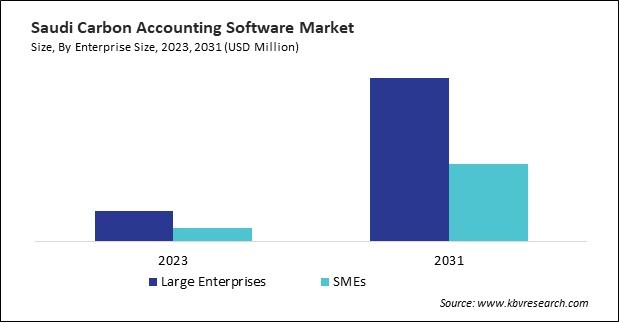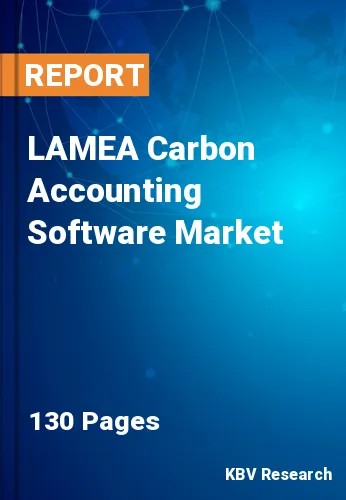The Latin America, Middle East and Africa Carbon Accounting Software Market would witness market growth of 24.5% CAGR during the forecast period (2024-2031).
The Brazil market dominated the LAMEA Carbon Accounting Software Market by Country in 2023, and would continue to be a dominant market till 2031; thereby, achieving a market value of $1,635.6 million by 2031. The Argentina market is showcasing a CAGR of 25.8% during (2024 - 2031). Additionally, The UAE market would register a CAGR of 24.1% during (2024 - 2031).

Organizations are increasingly adopting this software to achieve and maintain carbon-neutral certifications. The software helps track progress, verify emissions reductions, and comply with certification standards. Achieving carbon-neutral status through software-supported efforts is becoming a significant marketing and branding tool, enhancing corporate reputation and appealing to environmentally conscious consumers. Several trends are shaping this market. Emerging markets are seeing the introduction of new regulatory frameworks and policies that mandate carbon emissions reporting and management. Governments often lead these initiatives, creating a supportive environment for adopting this software.
This software providers are increasingly localizing their solutions to meet emerging markets' specific regulatory and reporting requirements. This includes adapting to local emission factors, standards, and industry practices. Solutions are being tailored to accommodate local languages and cultural contexts, making them more accessible and user-friendly for organizations in emerging markets. Moreover, this software is being integrated into development projects to achieve the United Nations Sustainable Development Goals (SDGs). This integration supports efforts to improve environmental sustainability in emerging economies. Collaborations with non-governmental organizations (NGOs) are helping to deploy this software in emerging markets as part of broader sustainability and climate action programs.
The chemical industry is a major emitter of greenhouse gases. As the industry grows, there’s a heightened need for precise and comprehensive emission tracking and reporting. This software becomes essential for chemical companies to monitor, manage, and report their carbon footprints in compliance with local and international regulations. As per the Industrial Development Bureau, the chemical industry in Abu Dhabi accounts for the greatest portion of the country’s GDP, contributing 53% in 2021 and attracting over AED 21 billion in investments. As Brazil invests more in renewable energy projects, such as wind, solar, and hydropower, there is a growing need for carbon accounting software to track and manage emissions associated with these projects. Accurate accounting is crucial for monitoring the carbon savings from these investments. According to the International Trade Administration (ITA), the renewable energy sector accounts for 83% of the Brazilian electricity matrix, while the global average is around 25%. The renewable energy industry has continuously expanded over the years through private investment. Thus, the rising chemical sector and increasing investments in renewable energy are driving the market's growth.
Free Valuable Insights: The Worldwide Carbon Accounting Software Market is Projected to reach USD 74.4 Billion by 2031, at a CAGR of 21.8%
Based on Deployment, the market is segmented into Cloud and On-premises. Based on Enterprise Size, the market is segmented into Large Enterprises and SMEs. Based on End-use, the market is segmented into Energy & Utilities, IT & Telecom, Transportation & Logistics, Healthcare, Retail, Food & Beverages, Construction & Infrastructure, Chemicals, and Others. Based on countries, the market is segmented into Brazil, Argentina, UAE, Saudi Arabia, South Africa, Nigeria, and Rest of LAMEA.
By Deployment
By Enterprise Size
By End-use
By Country
Our team of dedicated experts can provide you with attractive expansion opportunities for your business.

